Valkyria Chronicles 4 is a hell of a lot like Valkyria Chronicles, for good and bad
Anime war never changes.
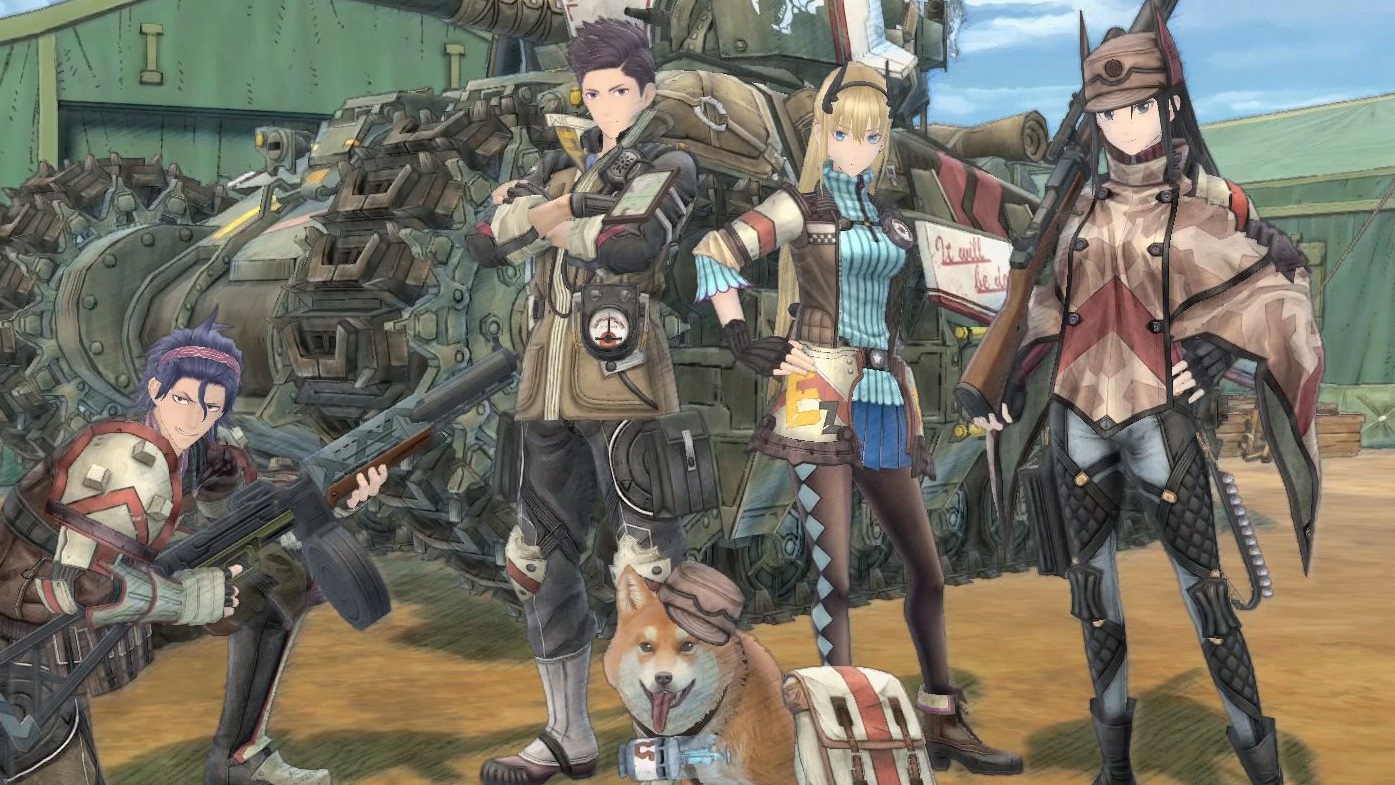
2008's Valkyria Chronicles was World War II by way of a JRPG: it opens with a chipper guy returning to his hometown, meeting a feisty girl, and immediately watching the bad guys (in this case, Nazis) blow the town to hell. And off to war we go! Valkyria Chronicles 4 is still anime as all hell, but takes a welcome cue from war movies that start in the midst of the action, with an established squad that has already seen its fair share of the action. For a game that's as much about its characters as its turn-based combat, knowing these soldiers already have relationships and piecing together their histories is a welcome way to kickstart a story.
Whole new cast aside, I was surprised at just how similar Valkyria Chronicles 4 is to the game Sega released a decade ago. I mean, really similar. As before, Valkyria is an uncommon blend of turn-based strategy and real-time action. From a bird's eye commander's view of the battlefield, you spend action points to select a unit, then run them around in third person to close in on enemy soldiers. Get close enough and they'll start firing on you, but you can freeze time to take aim and attack yourself. On turns where I got close to the enemy and fired, but didn't get a kill, I'd be scrambling to end that character's turn before they started getting shot at again.
That hybrid of real-time and turn-based always felt slightly awkward to me. So did some of Valkyria Chronicles' more blatantly 'gamey' level design touches. There's a cover system, but units can only hide behind sandbags placed around the map; sidle up to a corner or crouch behind a fallen tree, and the same mechanics and defense bonuses don't apply. So I went into Valkyria Chronicles 4 expecting a decade of refinement on those systems, or some new twists on them. I didn't find either.
At least in the intro mission I played, and two missions that take place later in the campaign, I was still crouching behind sandbags and wondering why they're the only form of cover that exists in this world. I was wondering if Sega, at this point, couldn't devote resources to more expressive animated cutscenes, rather than the storybook-style talking heads that frequently deliver dialogue between missions. Valkyria Chronicles 4 runs on the same engine as the recent remaster of Valkyria Chronicles that brought the game to PC for the first time, and it shows: other than its nice, sharp resolution, Valkyria Chronicles 4 feels like it could've been made a decade ago.
This is not an ambitious sequel, but it's true that there's really nothing like Valkyria Chronicles except Valkyria Chronicles. In a couple hours I was already getting emotionally attached to some members of my squad, all of whom have stats and attributes or personality traits that can be good or bad. Let me tell you about my sniper, Aladdin. Aladdin got so many headshots for me he ran out of ammo. I played this game like Aladdin was a one-man army. He was Tom Berenger from the movies Sniper, Sniper 2, Sniper 3, Sniper 5: Legacy, and Sniper 7: Ultimate Kill.
He also had a weakness: his smooth-shaved bald head was super reflective, making him easier to spot. That seems like a terrible trait for a sniper, but thankfully his rifle's scope keeps him out of the relatively short vision radius of most enemy troops, but still within killing range with a headshot. I appreciate that Valkyria Chronicles 4 gives me the freedom to spend my squad's action points as I see fit. On some turns, I had Aladdin move and attack two or three times in a row, obliterating enemy soldiers like a bald Billy Zane in Sniper 4: Reloaded, before everyone else moved up safely. On other turns, I'd sacrifice the chance to attack to move someone into flanking range, so that when I caused enemy troops to move, they'd take automatic fire from my soldiers (Valkyria has an innate XCOM-style overwatch system).
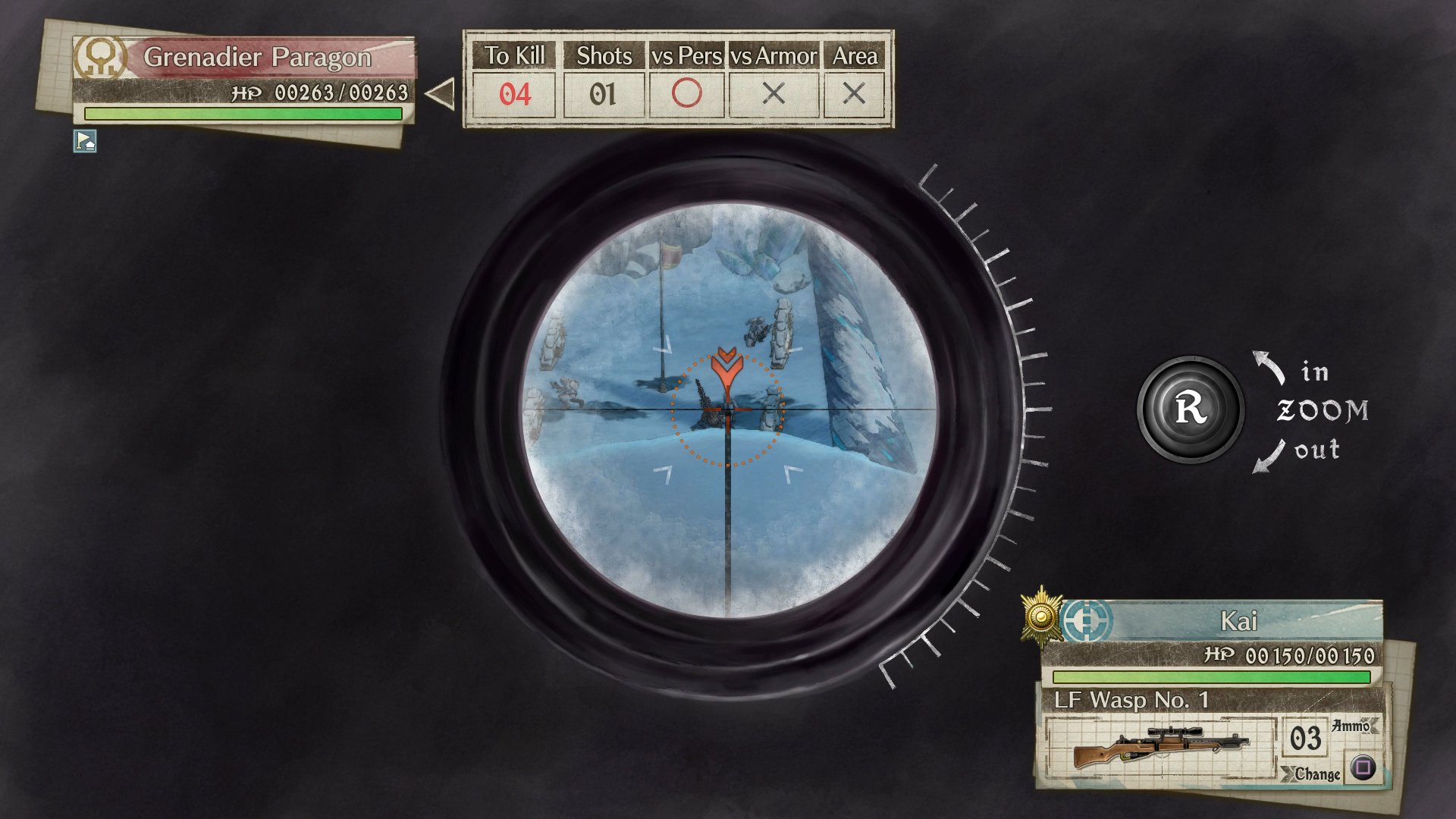
Playing Valkyria Chronicles 4 well is satisfying—I was proud to make it through a tough mission without taking any casualties my first time touching the game. Playing well also means playing slowly and carefully, and I'll admit I quickly started to tire of methodically creeping forward and taking out stupid AI. At least from what I played, the soldiers you're up against are not sophisticated: they mostly stay in place, shoot at what's in range, or move forward on a preset path.
The biggest gaming news, reviews and hardware deals
Keep up to date with the most important stories and the best deals, as picked by the PC Gamer team.
I was never nervous between turns wondering what they were going to do or where they were going to go. I wasn't facing complex flanking tactics or difficult choices about who to save and who to sacrifice, as in dedicated strategy games like Into the Breach or XCOM. And I wasn't pulling off clutch attacks with the physical skill required of real shooters—time stands still while you take aim with a soldier, and a large circle rather than a crosshair represents your accuracy and chance to hit.
So while it was satisfying to make it out of a mission unscathed, Aladdin racking up headshot after headshot, it felt a bit like going through the motions. As long as I moved methodically, I would come out just fine.
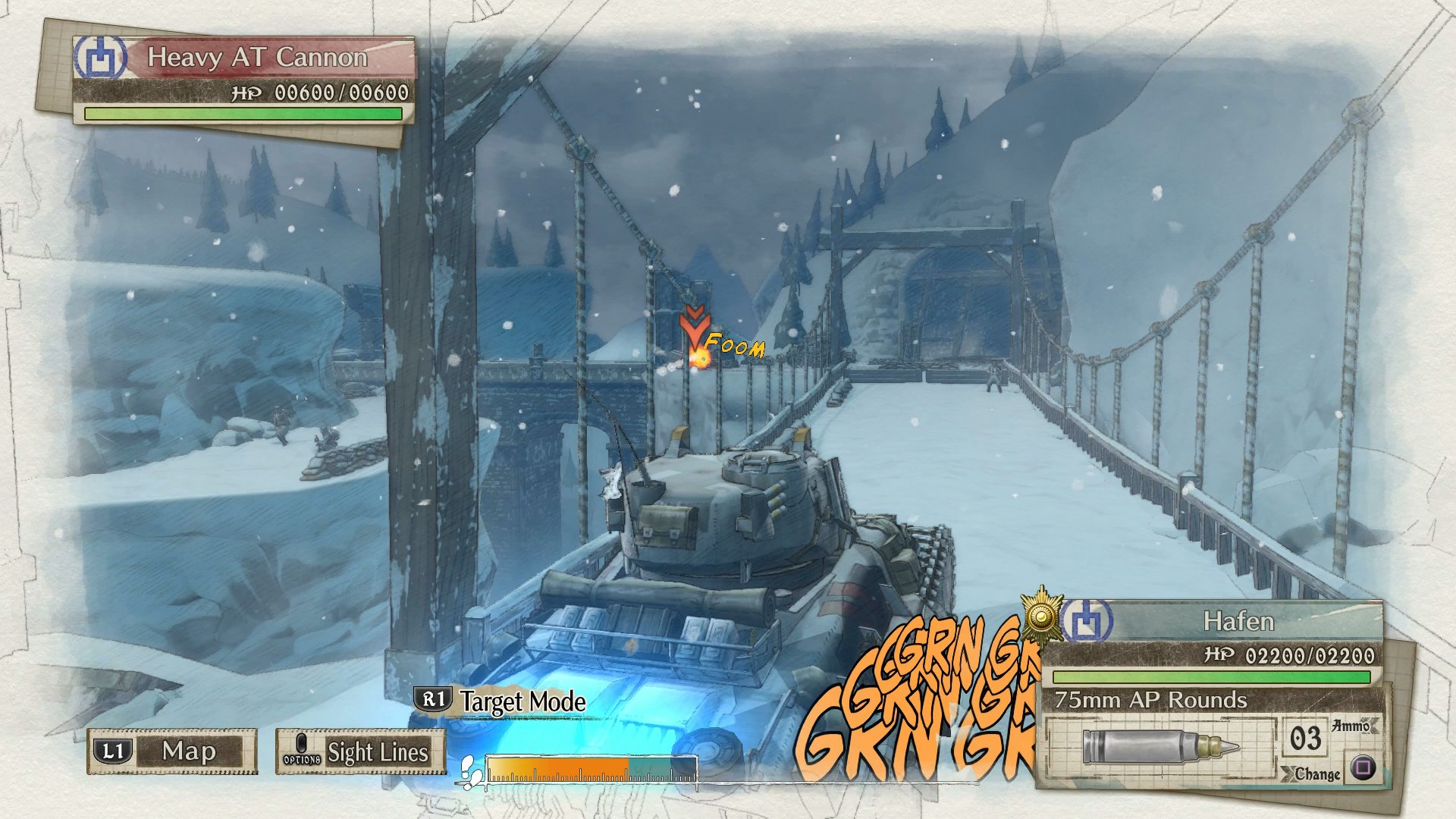
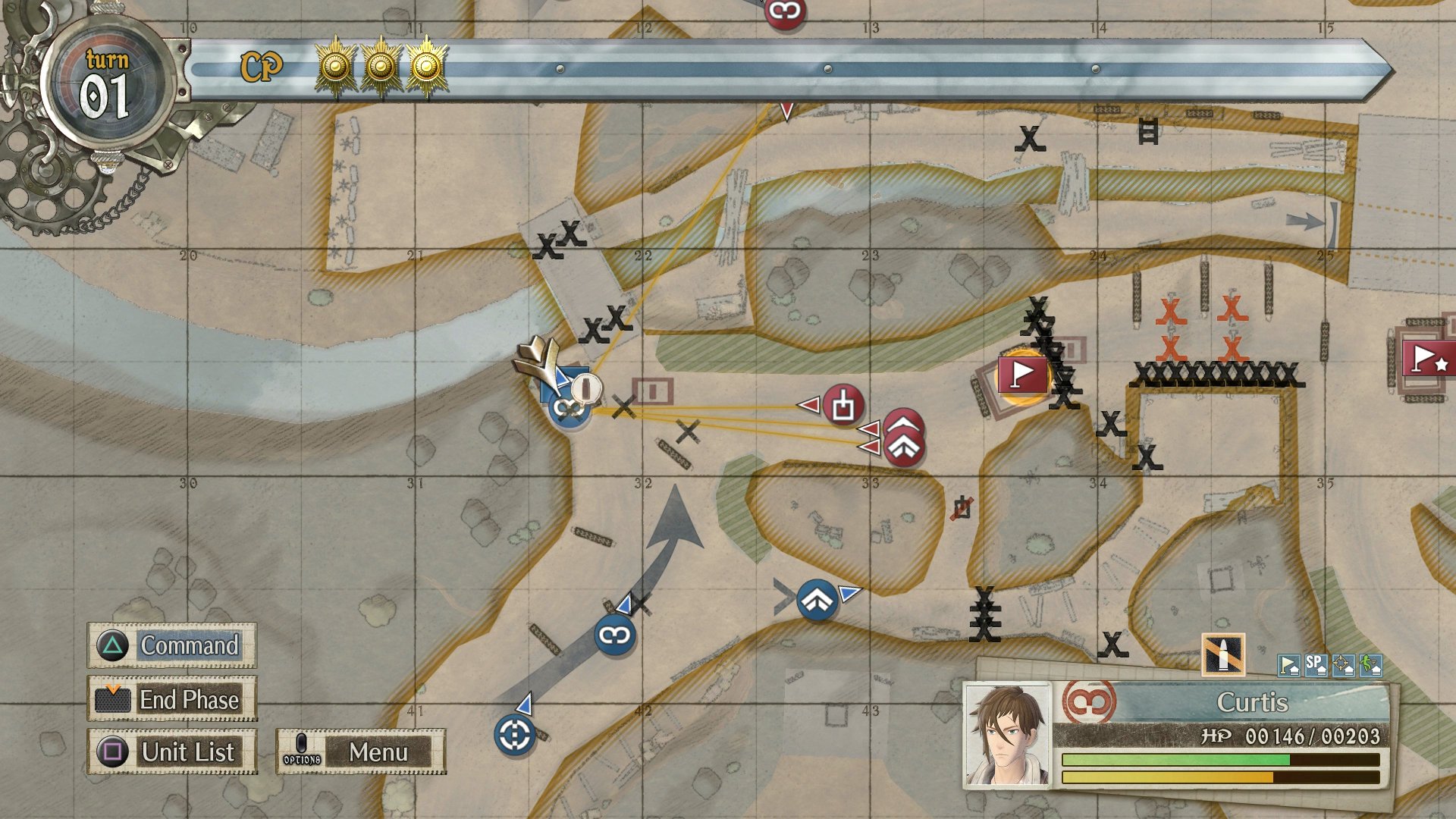
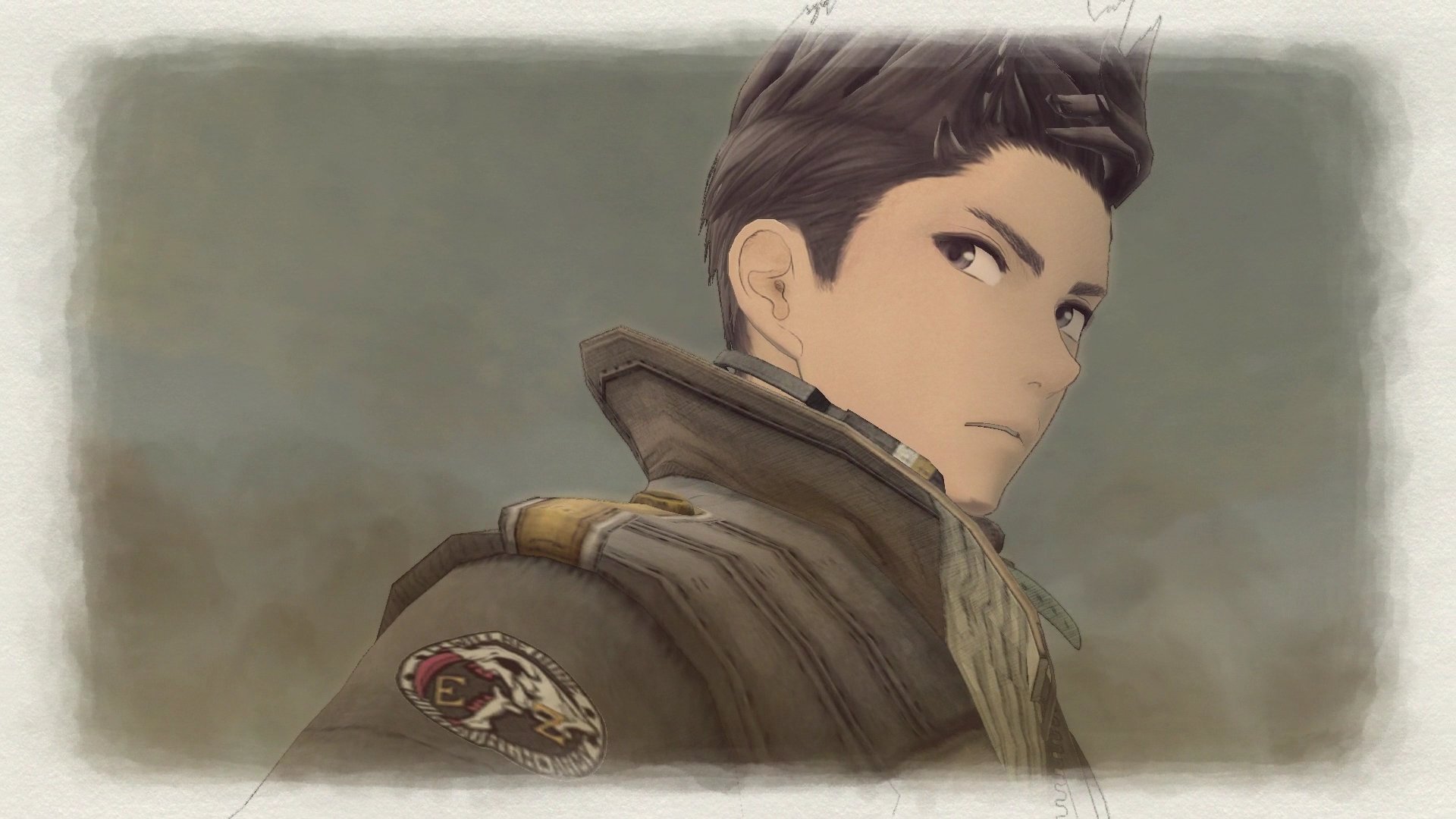
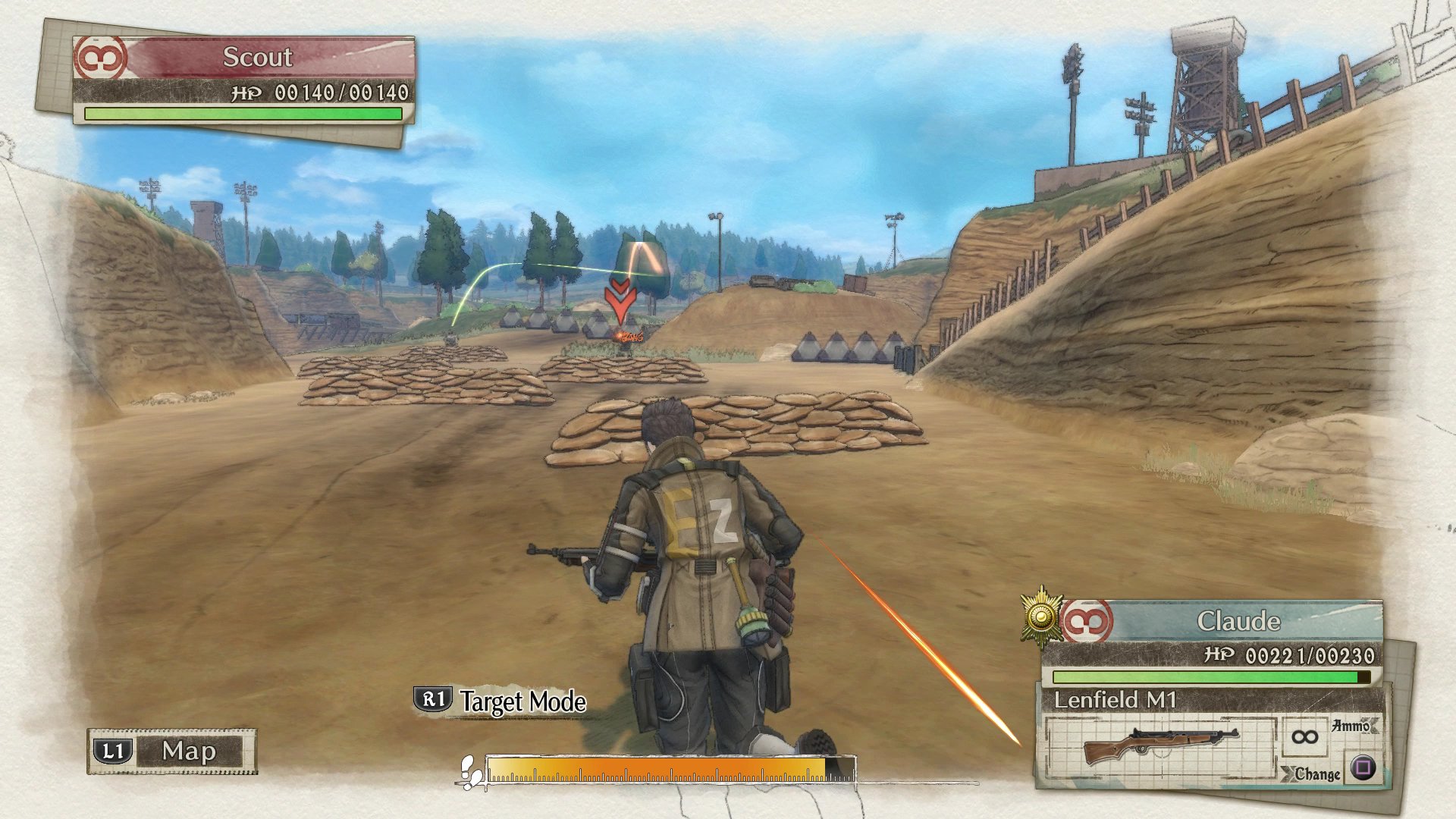
That's probably not the case with every mission in Valkyria Chronicles 4—I hope there are harder missions that really force you to adapt your strategy on the fly, and more proactive enemies that move around the field in more complex ways. A single mistake in Valkyria can rob you of a soldier you've invested tons of time and heart into, though in VC4 there's an option to turn off permadeath to make the game easier. Sega told me permadeath is really in the spirit of the game, though. You're in a war, after all, and feeling that jolt of loss, knowing you won't get to learn more of that character's story or use them on the battlefield, is part of the theme.
I would've liked to see Valkyria Chronicles grow more between 2008 and now—aside from adding a new class, the long-range grenadier, it's a remarkably similar game. But no one else is making bizarre strategy games with ensemble casts set in a fantasy World War II, and that's something I'll welcome more of on PC any time.

Wes has been covering games and hardware for more than 10 years, first at tech sites like The Wirecutter and Tested before joining the PC Gamer team in 2014. Wes plays a little bit of everything, but he'll always jump at the chance to cover emulation and Japanese games.
When he's not obsessively optimizing and re-optimizing a tangle of conveyor belts in Satisfactory (it's really becoming a problem), he's probably playing a 20-year-old Final Fantasy or some opaque ASCII roguelike. With a focus on writing and editing features, he seeks out personal stories and in-depth histories from the corners of PC gaming and its niche communities. 50% pizza by volume (deep dish, to be specific).

